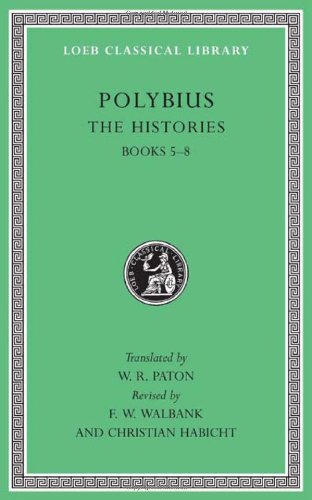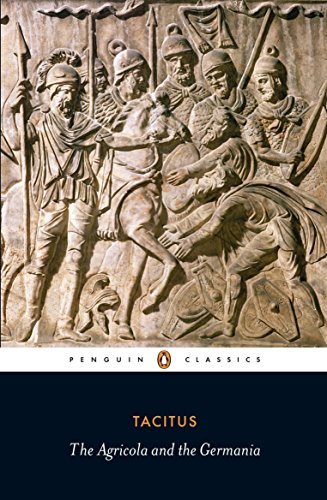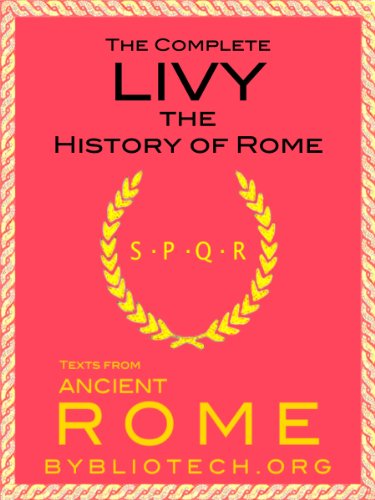The ancient Greek historian, Polybius, celebrated the Roman republic of ~ 150 BC under its constitution with balance of powers among the Senate, two elected consuls, and the general citizens:
“Such being the power that each part has of hampering the others or co-operating with them, their union is adequate to all emergencies, so that it is impossible to find a better political system than this.” – The Histories, Book VI, Section V: On the Roman Constitution at its Prime
Americans and people around the world were equally proud of the United States Constitution as “impossible to find a better political system than this.”
About 100 years after Polybius’ account, Rome’s republic had descended into oligarchic competition for power. Contemporary to Julius Caesar, the Roman historian and government insider Sallust blasted the decline of virtue in government:
 The Histories, Volume ...
Best Price: $18.02
Buy New $21.79
(as of 02:40 UTC - Details)
The Histories, Volume ...
Best Price: $18.02
Buy New $21.79
(as of 02:40 UTC - Details)
“To those who had easily endured toils, dangers, and doubtful and difficult circumstances, ease and wealth, the objects of desire to others, became a burden and a trouble. At first the love of money, and then that of power, began to prevail, and these became, as it were, the sources of every evil. For avarice subverted honesty, integrity, and other honorable principles, and, in their stead, inculcated pride, inhumanity, contempt of religion, and general venality. Ambition prompted many to become deceitful; to keep one thing concealed in the breast, and another ready on the tongue; to estimate friendships and enmities, not by their worth, but according to interest; and to carry rather a specious countenance than an honest heart. These vices at first advanced but slowly, and were sometimes restrained by correction; but afterwards, when their infection had spread like a pestilence, the state was entirely changed, and the government, from being the most equitable and praiseworthy, became rapacious and insupportable.” – Conspiracy of Catiline, The Argument
 Agricola and Germania ...
Best Price: $1.92
Buy New $9.46
(as of 10:25 UTC - Details)
The most prolific Roman historian, Livy, witnessed Rome’s transition into dictatorial empire with Augustus Caesar as first emperor. In his preface to address 700 years of Roman history:
Agricola and Germania ...
Best Price: $1.92
Buy New $9.46
(as of 10:25 UTC - Details)
The most prolific Roman historian, Livy, witnessed Rome’s transition into dictatorial empire with Augustus Caesar as first emperor. In his preface to address 700 years of Roman history:
“I have no doubt that the earliest origins and the immediately succeeding period will give less delight to the majority of readers who are hurrying to these recent times in which the might of a most powerful people has long been destroying itself.
… I shall seek this additional reward for my labor (recounting all Rome’s history) so that I may turn away from the contemplation of the evils that our age has seen for so many years.” – The History of Rome, Preface
Tacitus wrote ~ 100 AD, a century into empire. Emperors proclaimed to the public that their government still upheld the highest ideals of their Republic, claiming expanding empire was only and always in “self-defense.”
 Catiline’s War, ...
Best Price: $4.99
Buy New $8.97
(as of 09:25 UTC - Details)
Catiline’s War, ...
Best Price: $4.99
Buy New $8.97
(as of 09:25 UTC - Details)
Emperor Domitian’s assassination in 96 AD (among ~22 murdered emperors), allowed Tacitus to write The Agricola, a biographical text of his father-in-law contrasting claimed virtue of Roman military and citizenry with the emperor’s utterly corrupt despotism.
Importantly, this text describes the problem of virtuous Romans within a psychopathic government. Tacitus describes Agricola attempting to uphold virtue; but without recognition of any evil in serving an expanding dictatorial empire. Tacitus seems to assume the ideal of mos maiorum, “custom/virtue of Roman forefathers” will eventually triumph over the evil of present “leadership.”
In Agricola’s campaign as military and political leader of Roman Britain to expand the empire to modern Scotland from 78 – 84 AD, Tacitus recorded a speech he attributes to Scottish rebel-
 The Complete Livy: The...
Buy New $2.99
(as of 01:25 UTC - Details)
leader, Calgacus, to voice how those of virtue characterized Roman empire under corrupt emperors:
The Complete Livy: The...
Buy New $2.99
(as of 01:25 UTC - Details)
leader, Calgacus, to voice how those of virtue characterized Roman empire under corrupt emperors:
“It is no use trying to escape their arrogance by submission or good behavior. Robbers of the world, having by universal plunder exhausted the land, their drive is greed. If the enemy be rich, they are rapacious; if poor, they lust for domination. Neither rule of the East nor West can satisfy them. Alone among men, they crave with equal eagerness poverty and riches. To plunder, slaughter, seize with false pretenses, they give the lying name ‘empire.’ And where nothing remains but a desert, they call that ‘peace.’ ” – Tacitus, The Agricola and the Germania (analyses here, here)
Roman imperialists called Calgacus and those who preferred independence from evil empire a name:barbarus. This is translated today as “barbarian,” but its context for using unconventional warfare to oppose the most powerful military in its day is better translated in today’s language with a different word:
Terrorist.





